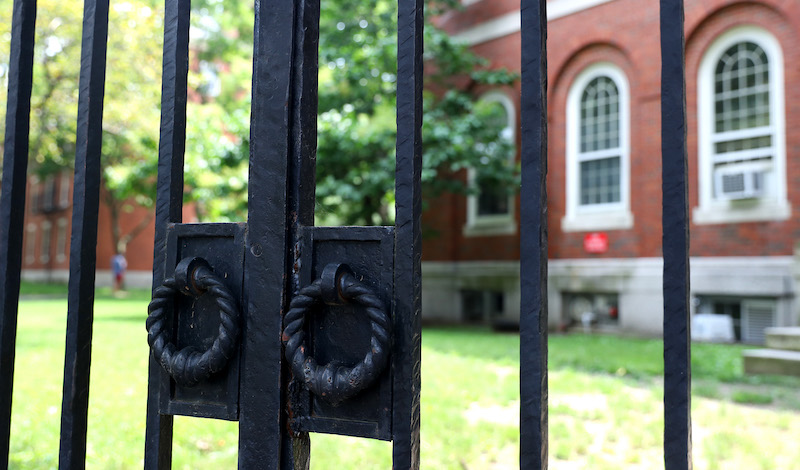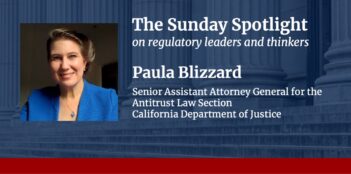
As Yale, Harvard, and other law schools withdraw from U.S. News rankings, they can argue it is good for competition.
Rankings pervade the world. People rely on them to make decisions about nearly everything—from which running shoes to buy, to which college to trust for education and flourishing. But when it comes to the U.S. News law school rankings, it may not be wise to trust them.
As extensive research demonstrates, the U.S. News rankings mislead students rather than usefully inform them. Moreover, by fueling a prestige battle among schools, the U.S. News rankings encourage universities to harm diversity—an essential facet of educational quality.
Expressing some of these concerns, Yale Law School last week pulled out from the U.S. News rankings. Shortly afterward, Harvard, Berkeley, Georgetown, Columbia, Stanford, and Michigan followed suit. Do these universities risk violating antitrust laws by withdrawing from the U.S. News rankings?
If the law schools withdrew independently from the U.S. News rankings, that cannot constitute a violation of Section 1 of the Sherman Act, which applies only to agreements to restrain trade. But if the law schools’ parallel withdrawal masks an agreement among them to boycott the U.S. News rankings, that agreement could potentially be anticompetitive for harming the quality competition among law schools.
To evaluate if the law schools’ parallel withdrawal from the rankings conceals a boycott, antitrust enforcers would look for evidence excluding the possibility that schools behave in an independent manner. For instance, any meeting or communication among the schools at which they discussed the possibility of boycotting the U.S. News ranks may indicate that the schools agreed to boycott the U.S. News rankings.
Antitrust enforcers might also examine whether the law schools acted contrary to their economic interests by withdrawing from the rankings, asking a core question: Would each law school’s decision to exit the U.S. News rankings be irrational but for an understanding that their closest rivals were committed to following suit? If the answer is “yes,” then enforcers could infer the existence of an agreement among the schools to form an anti-rankings boycott.
But pulling out from the rankings was the rational choice for elite schools to make after Yale Law opted out from the rankings game. Before Yale made the first move, schools faced a prisoners’ dilemma: each school that played the game received a higher rank but they were all worse off by deferring to U.S. News.
For instance, if a law school failed to choose students primarily on the basis of their LSAT or GRE scores but considered additional factors when selecting students, such as students’ commitment to service, it risked a drop in rank due to a reduction in that school’s performance on the selectivity dimension. By competing, however, to attract students with top LSAT and GRE test scores, law schools harm diversity and restrict opportunities for lower income students. Although the educational institution, society, and students would benefit from a diverse student body, no school would independently refuse to select students primarily based on their LSAT or GRE results. This is because other schools that continued to cooperate with the U.S. News would move up in rank.
Likewise, if a school decreased its expenditures per student to reduce socially wasteful investments that have nothing to do with educational quality and which lead to higher tuition fees, it would be punished by the U.S. News rankings. If so, the school’s ability to attract star faculty, excellent students, and generous donations from alumni would diminish.
Yale’s exit from the U.S. News rankings ended this prisoner’s dilemma. By pulling out from the rankings, schools freed themselves from the prestige battle that U.S. News had created. This new situation allows institutions to think independently about the future policies they want to adopt to promote diversity and enhance educational quality.
Withdrawing from the rankings following Yale Law’s exit is a rational choice for yet another reason: Elite law schools that keep deferring to the U.S. News rankings may risk harming their own reputation. Since several top schools pulled out of the rankings for the reason that U.S. News rankings discourages them from promoting diversity, rival law schools that keep playing the game may be perceived as indifferent to diversity, an important component of educational quality.
But if an agreement among law schools to boycott the U.S. News rankings came to light, the alleged conspirators would still not necessarily be liable under antitrust law. The collective agreement to withdraw from the rankings may be subject to the rule of reason—a balancing test that antitrust enforcers and courts apply to weigh an agreement’s procompetitive benefits against the harm caused to competition.
Law schools could argue that boycotting the rankings allows them to increase opportunities for lower income students and improve diversity. Antitrust enforcers would likely not remain deaf to this claim. In United States v. Brown University, a leading antitrust case, the Third Circuit Court of Appeals held that MIT and eight Ivy League schools’ “overlap” agreement, which allowed schools to award all financial aid on the basis of need, did not necessarily violate antitrust because it promoted the “social ideal of equality of educational access and opportunity.”
Law schools could also argue that boycotting the U.S. News system is procompetitive in light of how its rankings harm competition. For support, law schools can refer to California Dental Association v. Federal Trade Commission, which concerned a dental association’s policy that prohibited false or misleading advertising or solicitations. Although the Federal Trade Commission and the Ninth Circuit found the association’s policies to be anticompetitive, the Supreme Court disagreed in light of the professional context. To the Supreme Court, the dental association’s advertising restrictions operated in a market with “striking” disparities in information between the professional and the patient, so the restrictions plausibly promoted rather than restricted competition among dentists. Similarly, law schools may successfully claim that their anti-rankings boycott is a procompetitive ban on a rankings system that distorts the market by misleading students and failing to permit schools to prioritize diversity and equity in their admissions processes.
In response, antitrust enforcers may argue that schools do not need to form an anti-rankings boycott but can attain their goals by cooperating with the U.S. News editors to amend the ranking methodology so that they do not focus merely on prestige but also on other dimensions of educational quality, notably diversity.
But law schools could put forward two powerful claims. First, even if the law schools cooperated with U.S. News editors to improve the rankings methodology, schools may still be liable under antitrust law because they would have to agree on the quality dimensions that the U.S. News considers—that is, the dimensions of quality that they compete on. This is a form of collusion that could provoke antitrust scrutiny.
Second, previous efforts to convince the U.S. News to amend the ranking methodology to consider the institutions’ promotion of social values, such as equity and equality of opportunity, have been unsuccessful. Instead of addressing schools’ concerns, U.S. News has simply revealed the tactics that universities should employ to achieve a higher rank: increase their faculty resources and admit students with higher numerical scores. Hence, college leaders have reportedly felt that seeking change from the U.S. News is a “lost cause.”
Overall, law schools’ parallel withdrawal from the rankings does not imply that they have agreed to form a boycott against the U.S. News rankings. Law schools have good reasons to withdraw independently from the U.S. News rankings, especially after Yale paved the way for their exit. But even if an agreement among schools to boycott the rankings comes to light, law schools could escape antitrust liability by showing that rankings encourage them to harm diversity and equity and that rankings mislead students rather than effectively inform them.
This essay draws on her previous article “Equality of Opportunity and Antitrust: The Curious Case of College Rankings.”




